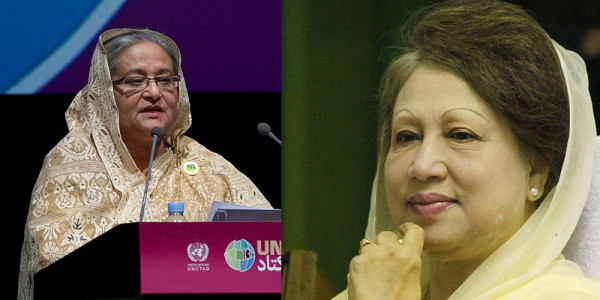Bangladesh is in turmoil. 2013 saw protests and violence, making it one of the bloodiest years since its independence. With the highly criticized elections, arrests of political opposition members and even more casualties, 2014 has not gotten off to a good start either. The international community, in particular the US, EU and UN, have generally condemned the recent elections and called for political reform. Yet they have not dared to say what urgently needs to be said; unless the current and incoming Prime Minister, Sheikh Hasina of the Awami League and opposition leader, Khaleda Zia of the Bangladesh National Party (BNP) both stepdown, Bangladesh will continue in a vicious cycle of conflict that will become increasingly violent.
Bangladesh has been ruled by Hasina and Zia since the beginning of the nineties. They worked together to oust the military regime in 1990, but since then they have turned into bitter rivals who seem now to prioritize contesting each other over serving their people.
Only radical change in leaderships will allow Bangladesh to come out of the vicious cycle it is stuck in. Merely holding new elections will not be enough to solve the underlying conflict that is plaguing the country. To begin with, for both Hasina and Zia the rivalry has become personal. The resentment they feel for each other goes beyond mere differences in political ideology. Suspicions of involvement with the assassination of family members aside, the years of contention have taken their toll. Both have such a strong hold on their respective parties that even if they are not directly at the table, they are still calling the shots. Only if they retire altogether from politics will there be a chance for change.
Both Hasina and Zia should live up to their commitments to their country and gracefully bow out. This should give the opportunity to make way for an interim government, instead of a caretaker government, since this would allow for more time for the necessary changes to be made before new elections are held. Such an interim government should be composed of representatives of all major parties, but should be technocratic in nature. Additionally, this period should focus on reforming the electoral process, including a constitutional review, adjustment of the Representation of the People Order (RPO), re-evaluation of key personnel at the Electoral Commission (EC), whilst it should also give time for both the Awami League and BNP to engage in some critical self-reflection. Lastly, these changes would also need to ensure that the power vacuum that may be created with the leadership stepping down does not open the door for a military take over. All of this should help create a politically healthy context for new general elections.
Obviously this is a big thing to ask, which is why influential players like the US, China, India, the EU and the UN should step up and speak out. Merely making critical comments from the side lines is no longer enough. The international community should make itself be heard and call on the powerful leaders of Bangladesh to leave the political scene for the benefit of a country that deserves better than what it has gotten since its independence.










